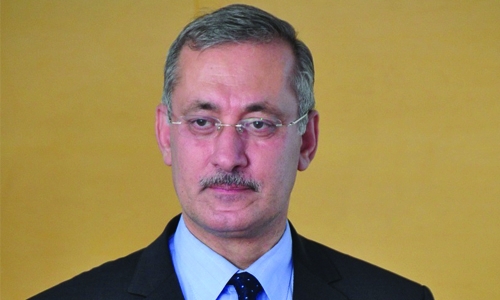Renewable energy in the Arab World: Innovations in business models
Renewable energy presents new windows of opportunity in terms on public-private partnerships, investment models and innovations in finance and business models. Firms and local communities can be both energy users and producers if net-metering or feed-in-tariff is applied for solar and wind energy. Cities and rural communities can manage their own energy as a cooperative or energy-user association. Technological innovations in energy storage may induce shifts in production and consumption patterns and governance. Specifically, advances in green building, green technology like electric and solar transport are likely to have major implications on auto industry and the business market.
Renewable energy or green technologies are key to support a transition to low-carbon economy. Globally about 30% of the business-as-usual CO2 emissions in buildings projected for 2020 could be mitigated through use of green technology and good practice. However, many barriers prevent technology adoption of green technology including lack of an enabling environment at policy, legal, technical and finance domains. A business model articulates the logic for initiating an activity, such as an investment in green technology. For example, in cases where energy is subsidized, market failure takes place since consumers do not receive accurate market price that shows the marginal cost of energy use.
A number of innovative business models for renewable energy exist based on global experience. These include the Energy Service Company (ESCO) to supply energy to a building owner. On the other hand, Energy Performance Contracting (EPC) is another model where an ESCO guarantees energy cost savings in comparison to a historical (or calculated) energy cost baseline. Another business model innovation is conducted through a feed-in remuneration scheme where the producer of renewable energy receives a direct payment per unit of energy produced. Also, innovations in green buildings include developing properties certified with a green building label so as to adopt a voluntary ‘green’ certification scheme.
Innovation in the finance include Property Assessed Clean Energy (PACE) financing which is a mechanism set up by a municipal government by which property owners finance renewable energy via an additional tax assessment on their property. The property owners repay the ‘assessment’ over a period of 15 to 20 years through an increase in their property tax bills.
Business models based on Energy Saving Obligations offer a policy instrument that obliges energy companies to realise energy savings at the level of end users. It stimulates business models based on financial incentives offered by energy suppliers to building owners, renters or energy service companies. ‘Green’ certification of buildings can stimulate investments in green technology in niche markets.
Business models can play an important role in increasing the deployment of innovative technologies. They provide opportunities for building owners, through facilitating access to capital and financing of up-front costs. However, business models alone will not lead to an increased deployment of green technology unless there is a supportive policy and legal environment. In essence, business models are likely to lead to a deployment of green technologies if they are cost-effective, sustainable and affordable. Studies and global experience show that in existing and new, large commercial, residential and public buildings, ESCO models can address the barriers of high upfront costs and access to capital. In small residential and commercial buildings, on-bill financing seems feasible. Energy efficiency based-business models have the advantage that they can work well for existing buildings whereas building codes tend to be limited to new buildings and substantial renovations.
In sum, there are a number of cost-effective opportunities for deployment of green technology in the construction sector including insulation of buildings and solar water heating. For technologies that are not cost-effective, business cases may be based on having a supporting legal and policy measures and economic incentives. The success of a business model for green technology hinges on having sound legal and policy environment, technical capacity, and partnerships among stakeholders.
Head of Innovation and Technology Management, Arabian Gulf University, Bahrain, E-mail: odehaj@agu.edu
Related Posts

